Popular Articles
- 5 HTP and Anxiety
- Medications That May Interact with Seronex
- 5-HTP or L-Tryptophan
- L-Phenylalanine for Depression
- What Are Symptoms of Low Serotonin?
- St. Johns Wort Review - Anxiety and Depression
- Exulin Supplement Facts
- Seronex Supplement Facts
- 5 HTP Side Effects and Risks
- Signs and Symptoms of Serotonin Syndrome
- More Articles ...
 Naturally Cure DepressionIn This Article
Conventional antidepressants may provide immediately boost in mood but they are known to cause serious side effects ranging from worsening symptoms to addiction. Therefore, there is a growing interest in natural antidepressants. These natural solutions are generally safe, well-tolerated and effective. This article discusses the most effective natural remedies used in the management of depression.
Why Use Natural Remedies for Depression?Depression is a psychological condition normally treated with the use of medications which are called antidepressants. However, many depressed patients are now seeking natural alternatives to these antidepressant medications. One of the reasons for this shifting preference is the serious adverse effects of antidepressants. While some of the natural remedies for treating depression may not be totally free of adverse effects, they are a safe and effective alternative to standard antidepressants. Along with the side effects observed with the use of conventional antidepressants, there is also an increased risk of drug dependence especially for stimulant and psychoactive antidepressants. This means that some conventional antidepressants can be abused by patients who crave the euphoria produced at high doses. Furthermore, unlike most natural remedies for depression that can be discontinued after the patient has recovered, conventional antidepressants are to be through the lifetime of the patient. In addition, treating depression through natural means comes with some added health benefits. For instance, herbs do have multiple therapeutic benefits. Therefore, herbal remedies for depression can also benefit other aspects of users’ health. Through their anti-inflammatory, antioxidant and anticancer properties, these herbs can improve the general health of depressed patients while also improving their moods. Lastly, managing depression naturally is less expensive when compared to the rising costs of conventional antidepressants and professional psychotherapy. Prescription antidepressants are never cheap and the long-term therapy required makes the treatment more expensive and less encouraging. Natural Solutions to DepressionThere are many options to naturally cure depression. Some of these natural solutions can be used in combination with one another while some are best used alone. The first step in choosing from the different natural remedies available is to determine the root cause of the depression. For example, vitamin B12 supplementation will benefit depressed patients with low levels of the vitamin while stress-related depression can be effectively managed with herbs which have both an antidepressant and anti-stress properties. HerbsHerbs are easily one of the most popular natural remedies for depression. Some herbs are known to be effective antidepressants. These herbs work in similar ways to the synthetic antidepressant medications that affect the production and/or activities of neurotransmitters in the brain. Below are three popular herbs that have been clinically proven to be effective in managing depression. Ginkgo (Ginkgo biloba)
By improving the circulation of blood and transport of oxygen to brain cells, ginkgo enhances cognitive performance and brain function. But the effects of ginkgo on the brain and central nervous system are not limited to these. Through the action of some of its major bioactive phytochemicals, ginkgo works in the same way as the group of antidepressants known as monoamine oxidase inhibitors (MAOIs). MAOIs inhibit the actions of monoamine oxidase type A and B, the enzyme group responsible for breaking down monoamine neurotransmitters such as dopamine and serotonin. This reduces the activities of these monoamine neurotransmitters and causes the symptoms of depression. By blocking the action of these monoamine oxidases, ginkgo can improve mood in depressed patients. A group of terpene lactones and glycosides are the phytochemicals believed to be responsible for the medicinal properties of ginkgo. As a result, ginkgo extracts are standardized to contain at least 24% glycosides and 6% terpene lactones. Standardized ginkgo leaf extracts are available in the form of tablets, capsules, tinctures and herbal tea. Doses of between 80 mg and 240 mg of standardized ginkgo extract are recommended to take daily. Rhodiola (Rhodiola rosea)
Among the various groups of phytochemicals found in rhodiola species, rosavins and salidrosides are the major bioactive chemicals responsible for its antidepressant effects. However, rosavins are only found in Rhodiola Rosea species. Because rosavins and salidrosides occur naturally in the ratio 3:1 in rhodiola roots, rhodiola root extracts are now standardized to contain at least 3% rosavins and 0.8 - 1% salidroside. Like ginkgo, the active phytochemicals in rhodiola also work as a monoamine oxidase inhibitor. Therefore, they improve the activities and levels of monoamine neurotransmitters in the brain. Furthermore, rhodiola root extract can increase the production and activities of these neurotransmitters by promoting the passage of dopamine and serotonin precursors through the blood-brain barrier. Along with its antidepressant effects, rhodiola is also an adaptogen that can reduce stress. This is especially helpful for patients with stress-induced depression. St. John’s Wort (Hypericum perforatum)
The two active phytochemicals in St. John’s wort extract known to have antidepressant effects are hypericin and hyperforin. These two bioactive chemicals are believed to work in the same way as the two herbs already discussed above though there are still ongoing studies investigating the exact mechanisms of their antidepressant action. St. John’s Wort supplements are usually standardized by their hypericin content and the supplements are available in the form of capsules, tablets, and tinctures. The recommended daily dose of standardized St. John’s Wort supplement (containing 0.3% hypericin) is 900 mg. This daily dose should be broken down into 3 servings of 300 mg each. VitaminsVitamin deficiencies are quite common among depressed patients. This has led many researchers and physicians to believe that vitamins play important roles in the parts of the brain responsible for controlling mood. Vitamin deficiencies can affect the brain either directly or indirectly. Since vitamins are required for almost all the processes involved in the normal functioning of the body, their deficiencies usually cause a domino effect in the body. Therefore, some cases of depression can be treated by simply supplementing the missing vitamins. However, other cases of depression may require a combination of these vitamins. Some of the vitamins proven to contribute to improving mood are discussed below. Vitamin B12Vitamin B12 is also known as cobalamin and it is one of the B vitamins needed to support metabolism in all the cells of the body. Besides playing a major role in cellular metabolism, vitamin B12 also acts as a cofactor in many biochemical pathways in the synthesis of DNA. In addition, vitamin B12 improves brain function by contributing to the normal development of nerve cells. Since the human body cannot naturally synthesize this vitamin, it has to be obtained from diet or supplements. Either of these sources can be used to prevent and treat vitamin B12 deficiency.
The link between vitamin B12 and depression involves the metabolism of S-adenosylmethionine (SAMe) and increased homocysteine levels in the body. Through a complex metabolic pathway, vitamin B12, along with folic acid, is involved in the synthesis of S-adenosylmethionine. S-adenosylmethionine, in turn, is responsible for transferring methyl groups required for the production of monoamine neurotransmitters (serotonin, norepinephrine, and dopamine). Since these neurotransmitters are responsible for the regulation of mood, optimal levels of vitamin B12 are required to prevent and/or treat depression. Furthermore, depressed patients who are deficient in vitamin B12 almost always have high blood levels of homocysteine. This is because vitamin B12 is required for the conversion of homocysteine back to its precursor, methionine. When there is a deficiency in vitamin B12, the conversion process is disturbed. Therefore, homocysteine accumulates in the body and cause oxidative destruction of the parts of the brain responsible for regulating mood. Supplementing with vitamin B12 can address this deficiency and, by extension, treat depression. Food sources rich in vitamin B12 include milk, cheese, eggs, meat, fish, and chicken. Vitamin B9Vitamin B9, also known as folic acid and folate, is one of the popular B vitamins. Like other B vitamins, folic acid acts as a cofactor in many biochemical pathways. It is also involved in the synthesis and repair of DNA as well as cell division and growth. Although folic acid is not biologically active, it is converted to dihydrofolic acid, which is in turn converted to tetrahydrofolate and other derivatives in the body. All these folic acid derivatives are metabolically active in the body.
The link between folic acid and depression is similar to the one that exists between vitamin B12 and the psychological condition. For example, depressed patients have also been shown to be deficient in folic acid. Like vitamin B12, folic acid deficiency also affects the transfer of methyl groups which are needed to synthesize mood-regulating neurotransmitters. In addition, folic acid deficiency reduces the effect of antidepressants in depressed patients. Depressed patients who are deficient in folic acid can take folic acid supplements to improve their moods. Excellent food sources of folic acid should also be incorporated into the diet. Folic acid is found in rich amounts in foods such as collard greens, turnip greens, oranges, strawberries, celery, brussel sprouts, cauliflower, beets, corn, carrots, okra, asparagus, broccoli, grapefruit, and spinach. Vitamin B6Vitamin B6 is another B vitamin linked to depression but it works in a different way than folic acid and vitamin B12. Vitamin B6 has a more direct effect on mood. Pyridoxal phosphate is the biologically active form of vitamin B6 that can be utilized by the body. This bioactive form of vitamin B6 crosses the blood-brain barrier where it acts as a coenzyme to synthesize mood-regulating neurotransmitters (serotonin, dopamine, epinephrine, norepinephrine, and gamma-aminobutyric acid). Therefore, deficiency in vitamin B6 can cause neurological disorders such as depression.
Consequently, homocysteine will cause the oxidative destruction of the brain and nerve cells and this may lead to mental disorders such as depression. Vitamin B6 deficiency can be treated with vitamin B6 supplements and by adopting a diet rich in the vitamin. Although vitamin B6 exists in different forms, the supplement is usually sold as pyridoxine hydrochloride which is available as capsules, tablets and liquid dosage forms. Foods rich in this vitamin include meat, fish, vegetables, bananas, nuts, whole grain products, potatoes, beef liver, and spinach. Vitamin DVitamin D is the only vitamin produced in the body. It is made in the skin from a derivative of cholesterol following exposure to UVB light. The link between low levels of vitamin D and depression is now well established. In fact, the low production of vitamin D during the winter months has been proven to be responsible for depressive disorders such as SAD (seasonal affective disorder) as well as the increased incidence of inflammatory diseases and infections.
There are multiple ways of increasing vitamin D levels. One way is by increasing exposure to UVB light either directly from the sunlight or from the lamps used in tanning beds. Vitamin D levels can also be increased by eating more foods rich in vitamins D2 and D3. These include eggs, fatty fish, fish liver oil and mushroom. Lastly, vitamin D supplements can also be used to improve mood. Homeopathic RemediesHomeopathy is a form of alternative medicine that has been practiced for more than 200 years. This system of medicine originated from Germany but it is now widely practiced all over Europe and North America. Homeopathic remedies have been used effectively to treat many medical conditions including depression. An advantage of homeopathic remedies is their safety and the few, mild side effects they cause. Another important merit of the homeopathy system is that remedies are chosen to match the symptoms and personality of each depressed patient. Since symptoms and personalities vary, homeopathic remedies are individualized. Although, there are no universal homeopathy remedies that are can be prescribed for every depressed patient, some remedies are more commonly prescribed than others. Discussed below are the most popular homeopathy remedies for treating depression. SepiaSepia is popular among homeopaths because it is one of the few remedies with a very wide range of uses. This remedy is obtained from the ink sac of the cuttlefish. It is best used by women who suffer depression as a result of childbirth, menopause or loss of libido. It is also effective for irritable patients who are indifferent to family members and prefer staying away from people. Sepia is commonly prescribed for depressed patients who show symptoms such as lethargy, debility and mood swings. Kali phosphoricumThis homeopathic remedy prepared from potassium phosphate is exclusively used to treat psychological and stress-related disorders. This remedy is recommended for patients who suffer from depression as a result of working too hard. It also benefits depressed patients who sweat a lot and prefer seclusion. People who respond best to this remedy show symptoms such as headaches, irritation, sensitivity to cold, anemia, insomnia, and indigestion. Ignatia AmaraThis remedy is prepared from the poisonous seeds of St. Ignatius beans although the dilution process during preparation makes the remedy safe for use. Ignatia is most appropriate for emotionally weak and touchy women who have just experienced the loss of someone or a failed relationship. People who require this remedy often feel a lump in the throat and they also yawn regularly. Symptoms such as insomnia, headaches, and cramping pains in the abdomen and back are often observed in people who are best suited to this remedy. Other homeopathic remedies that can be used to treat depression are Arsenicum album, Aurum metallicum, Calcarea carbonicum, Pulsatilla pratensis, and Staphysagria. Other Natural SupplementsBesides the natural solutions already discussed above, there are some other natural supplements that can alleviate depression. Some of these other options are discussed below: SAM-e (S-adenosyl methionine)SAM-e is synthesized in all cells in the body from an amino acid, methionine, and ATP (adenosine triphosphate, the chief energy molecule in the body). It is effective in alleviating depression and is commonly prescribed for the treatment of this condition as a nutritional supplement. In transmethylation reactions, SAM-e is responsible for donating methyl groups which are necessary for the production of monoamine neurotransmitters. It specifically increases the production of serotonin and dopamine which are responsible for the regulation of mood in the brain. Therefore, the levels of SAM-e in the body can be boosted with oral SAM-e supplements to address depression. To improve the absorption and stability of this supplement, oral SAM-e supplements are available as salts and as enteric-coated tablets. L-phenylalanineThis essential amino acid exists as one of the three forms of phenylalanine. In the body, it is primarily used to produce L-tyrosine after crossing the blood-brain barrier through active transport. L-tyrosine, in turn, is converted to L-dopa from which mood-regulating monoamine neurotransmitters (dopamine, epinephrine, and norepinephrine) are derived. Consequently, L-phenylalanine deficiency can lead to serious health problems such as mental confusion, reduced alertness, lethargy, depression, memory impairment and loss of appetite. However, L-phenylalanine can reduce the production of another neurotransmitter, serotonin. This is due to the competition between L-phenylalanine and serotonin precursor, tryptophan when crossing the blood-brain barrier through the same active transport mechanism. L-phenylalanine supplements are available in oral dosage forms of tablets, capsules, and powders. The artificial sweetener, aspartame, is also known to contain a high amount of L-phenylalanine. This amino acid (and its dietary and supplemental sources) should be avoided by depressed patients who are also phenylketonurics. Phenylketonurics are missing the enzyme to effectively utilize phenylalanine. Therefore, the accumulation of the amino acid can cause serious side effects in these people. Other important natural supplements used in the treatment of depression are omega-3 fatty acids. ExercisesExercise is very effective for improving mood. It is helpful for relaxing the mind and improving blood flow and oxygen transport to the brain. A positive boost in mood is usually observed after exercising. Therefore, regular exercise is recommended for treating depression.
In addition, depressed patients who are deprived of sleep can improve their sleeping patterns by regularly engaging in exercise. Lastly, regular exercise provides the opportunity to get some sunlight which can increase the production of mood-lifting vitamin D in the skin. Exercises that may be beneficial for depression include, walking, swimming, jogging, playing tennis, skipping and biking. Sourceshttp://www.webmd.com/depression/guide/exercise-depression http://www.herbwisdom.com/herb-rhodiola.html http://cms.herbalgram.org/herbalgram/issue56/article2333.html
[+] Show All
|
| Next Article: 5 HTP and Heart Issues |





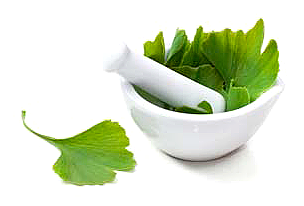 This herb has been used for centuries in Chinese and Japanese cultures for its culinary and medicinal benefits. Presently, alternative medicine practitioners use the leaf extracts of
This herb has been used for centuries in Chinese and Japanese cultures for its culinary and medicinal benefits. Presently, alternative medicine practitioners use the leaf extracts of 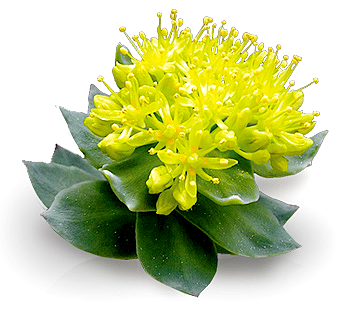 Rhodiola is another herb that can be used to treat depression. This herb has a long history of medicinal use in Russian and Chinese traditional medicine.
Rhodiola is another herb that can be used to treat depression. This herb has a long history of medicinal use in Russian and Chinese traditional medicine.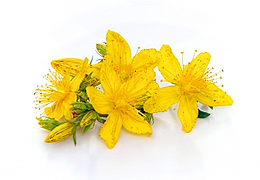 St. John’s Wort is one of the most popular antidepressant herbs in the US. It is very common because it is an invasive weed.
St. John’s Wort is one of the most popular antidepressant herbs in the US. It is very common because it is an invasive weed.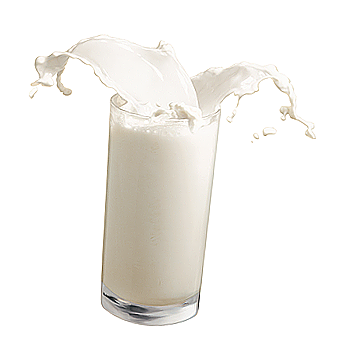 A number of studies have shown that vitamin B12 deficiency is common among depressed patients.
A number of studies have shown that vitamin B12 deficiency is common among depressed patients.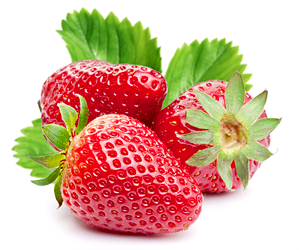 Because folic acid plays multiple important roles in the body, its deficiency can cause seizures, vascular changes, depression, cognitive impairment, and movement abnormalities.
Because folic acid plays multiple important roles in the body, its deficiency can cause seizures, vascular changes, depression, cognitive impairment, and movement abnormalities.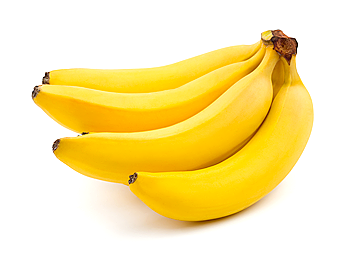 However, like the other B vitamins associated with depression, low levels of vitamin B6 will result in high levels of homocysteine. Because vitamin B6 is one of the B vitamins responsible for converting homocysteine to the next amino acid or methionine, its deficiency will lead to an increased level of homocysteine in the blood.
However, like the other B vitamins associated with depression, low levels of vitamin B6 will result in high levels of homocysteine. Because vitamin B6 is one of the B vitamins responsible for converting homocysteine to the next amino acid or methionine, its deficiency will lead to an increased level of homocysteine in the blood.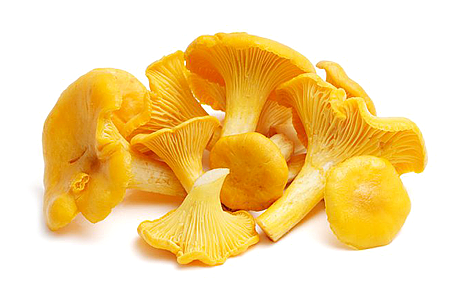 In the brain, vitamin D is concentrated in the areas involved with mood and emotion. It prevents the release of inflammatory cytokines that can damage neurons. In addition, this vitamin is required for the release of neurotransmitters in the brain.
In the brain, vitamin D is concentrated in the areas involved with mood and emotion. It prevents the release of inflammatory cytokines that can damage neurons. In addition, this vitamin is required for the release of neurotransmitters in the brain. During exercises, endorphins are released in the body. Like morphine, this chemical triggers a euphoric feeling. It also produces an effect that is similar to the rewarding feeling associated with neurotransmitters such as dopamine and epinephrine.
During exercises, endorphins are released in the body. Like morphine, this chemical triggers a euphoric feeling. It also produces an effect that is similar to the rewarding feeling associated with neurotransmitters such as dopamine and epinephrine.